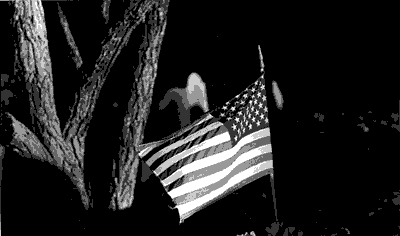All Nonfiction
- Bullying
- Books
- Academic
- Author Interviews
- Celebrity interviews
- College Articles
- College Essays
- Educator of the Year
- Heroes
- Interviews
- Memoir
- Personal Experience
- Sports
- Travel & Culture
All Opinions
- Bullying
- Current Events / Politics
- Discrimination
- Drugs / Alcohol / Smoking
- Entertainment / Celebrities
- Environment
- Love / Relationships
- Movies / Music / TV
- Pop Culture / Trends
- School / College
- Social Issues / Civics
- Spirituality / Religion
- Sports / Hobbies
All Hot Topics
- Bullying
- Community Service
- Environment
- Health
- Letters to the Editor
- Pride & Prejudice
- What Matters
- Back
Summer Guide
- Program Links
- Program Reviews
- Back
College Guide
- College Links
- College Reviews
- College Essays
- College Articles
- Back
End of an Era: From Bush to Clinton
The end of the 20th century featured a wide range of social, political, and economic upheavals that forever changed the face of the United States, including the rise of Republicanism in office, the election of Bush, the Persian War, anti-immigration sentiment, and LA riots. The outcome of the Election of 1988 of Republican George Bush versus Democrat Michael Dukakis was majorly due to Republican smear campaign creating a negative image of Dukakis as the candidate “American values” with radical liberal ideas. Bush’s election victory illustrated the affluence of image versus issues in our politically painted society. With the new ethnic trends of the 1980s and ‘90s showing that immigration contributed toward the rising growth of America, much of the American society held anti-alien hostility which Bush took advantage of American sentiment and allowed laws such as the Immigration and Control Act and Proposition 187 to restrict immigration of “illegals.” The international political hemisphere of the period of the 1980-90s reflected in some ways positively on Bush, though not necessarily due to his influence. The Collapse of Communism in Eastern European nations and Fall of the Berlin War suggested a sense of cold war finality, and shift in political power to the U.S. with the fall of one of America’s potential threats/superpowers. Unfortunately, more political turmoil came with the Iraqi invasion of Kuwait, which roused U.S. fear for its own oil interests in the Middle East. On January 16, 1991, Operation Desert Storm went into effect, leading to the bombing of Iraq and Kuwait, “six time the equivalent of the equivalent dropped on Nagasaki in World War 2”- Out of Many. In spite of the destruction of the Iraqi infrastructure and suffering of millions of its citizens, many U.S. citizen celebrated America’s victory in the Persian War, highlighting the political epitome of Bush’s presidential career and popularity. The resonance of the military success did not last long with the conflicting climates America was facing, with the vicious gang wars and riots in LA, the stiff economic competition from Asian and European countries, and financial struggle of the blue-collar working class.
Bush’s presidency symbolized the power of the conservative ascendancy, demonstrating the strengthening of U.S. military defenses, while cutting privileges to immigrants looking for the potential American Dream and unable to halt the economic crises, which consisted of some of America’s highest recessions and national debt. Bill Clinton’s, a liberal anti-Vietnam War Democrat, campaign consisted of promises to be tough on crime and bureaucracy, encouraging private investment to create new jobs, and a focus on national debt, with effective media strategies gravitating toward the younger generation. On Election Day, Clinton won the popular vote over Bush and became the first Democrat in over 12 years.

Similar Articles
JOIN THE DISCUSSION
This article has 0 comments.
